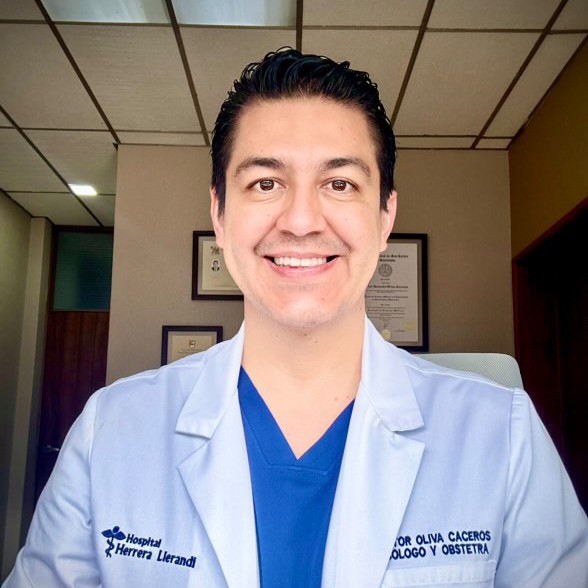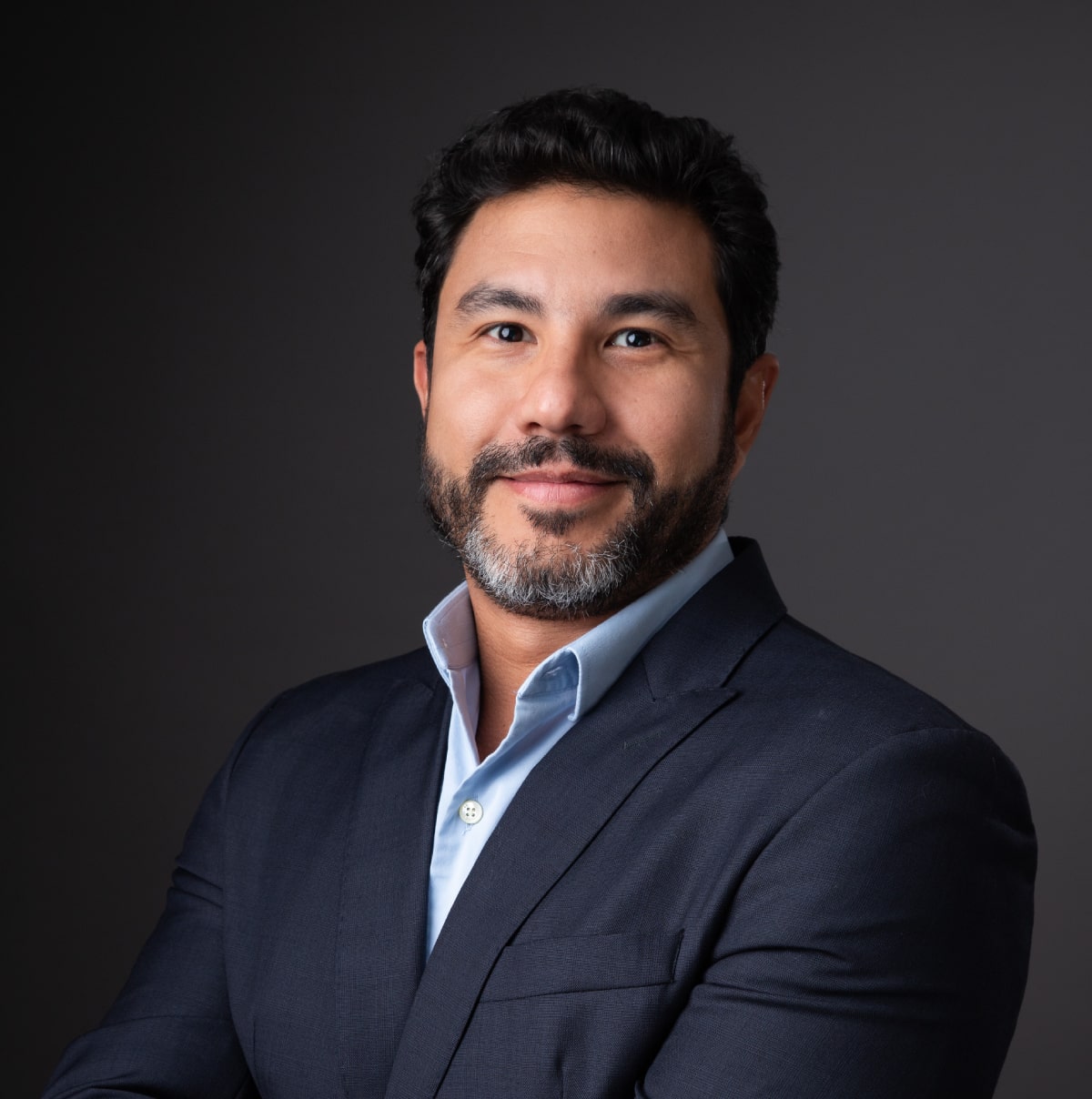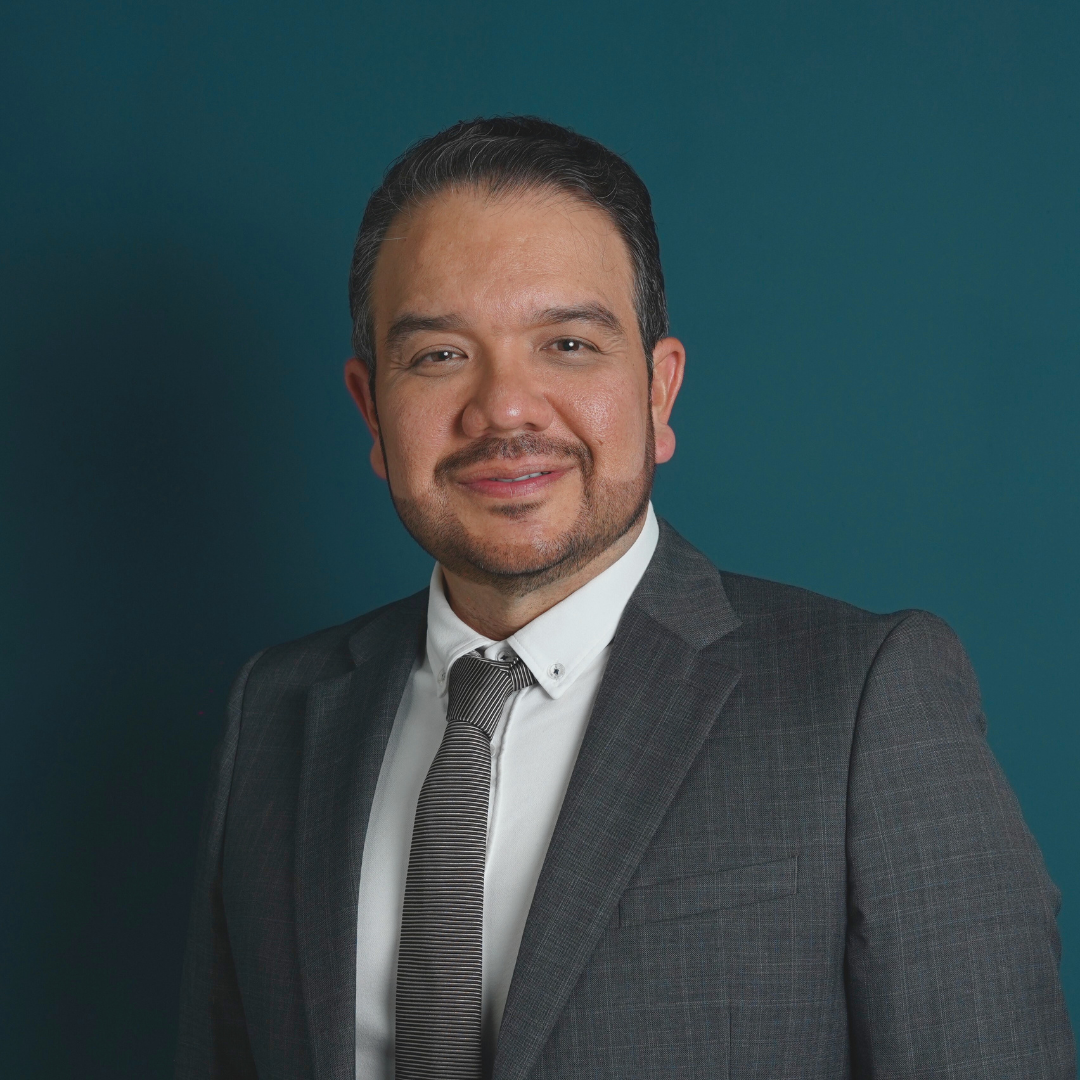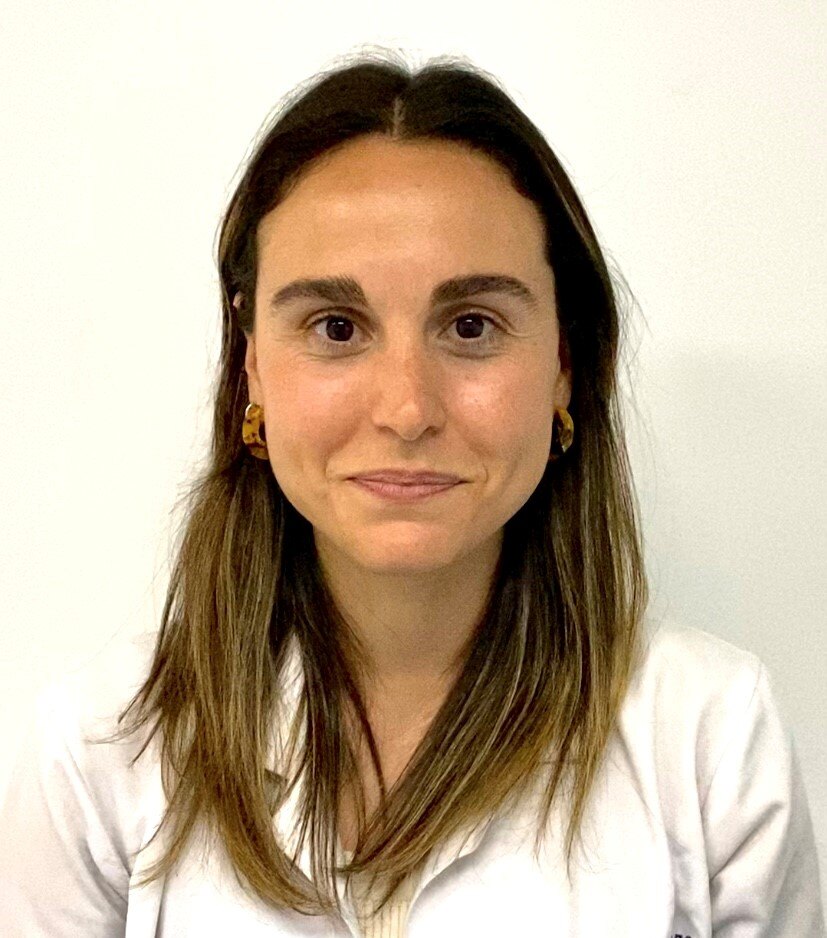
Dr. Ronald Enrique Delgado Bocanegra
Dr. Ronald Enrique Delgado Bocanegra,
Dr Ronald Delgado – Endometriosis Specialist
Summary: Dr Ronald Delgado is a dedicated endometriosis specialist based in Salvador, Brazil, known for his expertise in excision surgery and compassionate care. Rooted in the embryonic theory of endometriosis, Dr Ronald Delgado believes the condition is congenital, not caused by retrograde menstruation. This understanding shapes his focus on complete, fertility-preserving excision as a long-term solution. Dr Ronald Delgado prioritizes individualized care, using medication selectively to manage symptoms before or after surgery when necessary. For patients experiencing persistent pain, he takes a holistic and multidisciplinary approach, evaluating for residual disease and coexisting conditions like pelvic floor dysfunction or IBS. His patient-first philosophy ensures every woman receives thoughtful, evidence-based care tailored to her needs. With a reputation for meticulous surgical technique and compassionate follow-up, Dr. Ronald Delgado offers hope and healing to patients navigating the challenges of endometriosis.
City: Salvador, Bahia, Brazil
Philosophy of Endometriosis Care: My approach to the treatment of endometriosis is grounded primarily in the embryonic theory of origin, as proposed by Dr. David Redwine. According to this theory, endometriosis results from the aberrant differentiation of embryonic Müllerian remnants, which persist outside the uterine cavity and later develop into endometriotic lesions. This perspective shifts the focus away from retrograde menstruation and toward the concept that endometriosis is a congenital disease, present from birth and not caused by menstrual backflow. It explains cases in premenarchal girls, women with Müllerian anomalies, and the presence of endometriosis in distant locations that retrograde menstruation can’t account for. Clinically, this theory supports a surgical approach that emphasizes complete excision of all visible and suspected disease, rather than ablation or suppression. It also reinforces the idea that endometriosis is not a recurrent disease if completely removed — recurrence is often due to incomplete excision. Therefore, my goal is to perform meticulous, fertility-preserving excision surgery whenever possible, aiming for long-term relief and definitive treatment
What type of surgery do you perform for endometriosis: Excision
Medication: Grounded in the embryonic theory of endometriosis, I view the disease as congenital and not caused by retrograde menstruation. Therefore, my primary treatment is complete surgical excision, aiming for definitive management. Medications are used as supportive tools in two main contexts: before surgery, to manage symptoms temporarily when immediate surgery isn’t feasible. After surgery, in selected cases — like when there’s a residual microscopic disease or when fertility preservation is a priority. I typically use: Continuous combined oral contraceptives, Progestins (like dienogest) GnRH analogues with add-back therapy These options help control symptoms but don’t cure the disease. The focus remains on individualized, surgical-centered care.
Approach to Persistent Pain After Surgery: When patients experience persistent symptoms after surgery for endometriosis, my approach is comprehensive and individualized. First, I assess whether the symptoms are due to residual disease, coexisting conditions, or central sensitization. Persistent pain doesn’t always mean recurrence — it could be related to pelvic floor dysfunction, adenomyosis, irritable bowel syndrome, interstitial cystitis, or neuropathic pain. If I suspect residual or recurrent disease, I review the surgical report and imaging and may repeat diagnostic imaging with an expert. In some cases, reoperation may be necessary, especially if the initial surgery was incomplete. If other causes are identified, I work with a multidisciplinary team — including pelvic physiotherapists, pain specialists, gastroenterologists, and psychologists — to address the symptoms holistically. Medication (like progestins or neuromodulators) can also be used as part of symptom control, but not as the sole strategy. In essence, I treat persistent symptoms not with a one-size-fits-all approach, but through careful reassessment, patient education, and a multidisciplinary plan tailored to each woman’s needs.

Dr. Mohammad Haekal
Dr. Mohammad Haekal
Dr Mohammad Haekal – Endometriosis Specialist
Summary: Dr Mohammad Haekal is a skilled endometriosis specialist based in Jakarta, Indonesia, known for his comprehensive approach to care. Dr Mohammad Haekal integrates the retrograde menstruation, stem cell, and epigenetic theories to understand and treat endometriosis effectively. His surgical expertise focuses on precise excision to remove endometriotic lesions completely, aiming for long-lasting relief. Dr Mohammad Haekal complements surgery with tailored medication options, including dienogest and GnRH analog injections, to manage symptoms before and after treatment. For patients experiencing persistent pain after surgery, Dr Mohammad Haekal emphasizes medical management and typically recommends only one thorough surgical intervention. His patient-centered philosophy ensures personalized treatment plans that consider each woman’s unique needs, supporting recovery and improved quality of life. With a focus on effective, evidence-based care, Dr Mohammad Haekal provides hope and support for those navigating endometriosis.
City: Jakarta, Indonesia
Philosophy of Endometriosis Care: Retrograde, stem cell, and epigenetic theories.
What type of surgery do you perform for endometriosis: Excision
Medication: Dienogest GnRH Analog injection
Approach to Persistent Pain After Surgery: Medical management first, we only perform a single, complete, comprehensive surgery.

Dr. Mamta Mamik
Dr. Mamta Mamik
Dr. Mamta Mamik – Endometriosis Specialist
Summary: Dr. Mamta Mamik is a dedicated endometriosis specialist based in New York City, known for her expertise in excision surgery and comprehensive patient care. Dr. Mamta Mamik approaches endometriosis treatment with a deep understanding of the embryonic rest theory, coelomic metaplasia, and stem cell theory, providing personalized care tailored to each patient’s needs. She typically recommends oral contraceptives and the Mirena IUD after excision surgery to help prevent recurrence, avoiding GnRH agonists unless specifically requested by the patient. Dr. Mamta Mamik believes in a multi-modality approach to managing persistent pain after surgery, working closely with physical therapists, offering nerve blocks, and considering neuromodulator implants when necessary. Her patient-centered care focuses on improving quality of life through effective pain management and ongoing support. This warm and thorough approach makes Dr. Mamta Mamik a trusted expert for those seeking relief from endometriosis symptoms.
City: New York City, New York
Philosophy of Endometriosis Care: Embryonic rest theory, coelomic metaplasia, stem cell theory
What type of surgery do you perform for endometriosis: Excision
Medication: Only oral contraceptives and Mirena IUD. I recommend their use after excision surgery to avoid recurrence. I avoid using GnRH agonists, as this makes excision difficult unless the patient really would like to try this.
Approach to Persistent Pain After Surgery: A multi-modality approach is always best. This includes collaboration with physical therapy, nerve blocks in the office, and possible neuromodulator implants depending on the severity of pain.

Dr. Hector Oliva
Dr. Hector Oliva
Dr Hector Oliva – Endometriosis Specialist
Summary: Dr Hector Oliva is an endometriosis specialist based in Ciudad de Guatemala, Guatemala, known for his expertise in excision surgery and personalized care. Dr Hector Oliva follows the Mullerosis Gene Ensemble Genetic Theory, offering a scientific and compassionate approach to understanding and treating endometriosis. He combines surgical precision with supportive therapies to ensure the best outcomes for his patients.
In his practice, Dr Hector Oliva emphasizes the importance of mapping disease before surgery and tailors medication plans that may include dienogest, combined oral contraceptives, NSAIDs, and antioxidant supplements. He integrates lifestyle guidance, including nutrition, physical therapy, and exercise, into every patient’s care. For persistent pain after surgery, he recommends a six-month recovery period with continued rehabilitation to evaluate results and promote healing. Patients benefit from his holistic, science-driven approach to long-term symptom relief and improved quality of life.
City: Ciudad de Guatemala, Guatemala
Philosophy of Endometriosis Care: Mullerosis Gene Ensemble Genetic
What type of surgery do you perform for endometriosis: Excision
Medication: Dienogest with little symptoms and few diseases through mapping. Before surgery, pills containing estradiol plus dienogest are used when the patient needs contraception. AINEs and antioxidant supplements. Every patient needs nutritional guidance, exercise, and physical therapy
Approach to Persistent Pain After Surgery: Perform lifestyle changes and wait 6 months after the surgery. because this is the time that we can evaluate the benefits of the surgery. Every patient continues with physical rehabilitation.

Dr. Ruy Machado Jr.
Dr. Ruy Machado Jr.
Dr. Ruy Machado Jr – Endometriosis Specialist
Summary: Dr. Ruy Machado Jr. is a dedicated endometriosis specialist based in São Paulo, Brazil, known for his expertise in excision surgery. Dr. Ruy Machado’s approach to care is rooted in the cellular metaplasia and autoimmune theories, offering patients a comprehensive understanding of their condition. He often uses medications like dienogest both before and after surgery to manage symptoms effectively. For more severe cases, such as grade 4 endometriosis, Dr. Machado incorporates goserelin acetate post-surgery for up to six months. With 17 years of experience in laparoscopy and robotic surgery, Dr. Ruy Machado prioritizes nerve-preserving excision techniques, resulting in minimal persistent pain after surgery. When symptoms do persist, they are typically managed with continuous dienogest, anti-inflammatory medications, or levonorgestrel IUDs. His patient-centered approach ensures individualized treatment and long-term relief for those living with endometriosis.
City: São Paulo, Brazil
Philosophy of Endometriosis Care: Believe mainly in the theory of cellular metaplasia and the autoimmune theory.
What type of surgery do you perform for endometriosis: Excision
Medication: I often use medications; I often use Dienogest and goserelin acetate. I use dienogest both before and after surgery to control symptoms. Gosserlin acetate is used exclusively after surgery in cases of grade 4 endometriosis for a period limited to 6 months.
Approach to Persistent Pain After Surgery: I have been treating endometriosis for laparoscopy for 17 years, and more recently, for robotic surgery. In recent years, we have had very few patients with persistent symptoms after the surgeries we practice using nerve-preserving disease excision techniques. The cases we had improved only with the use of continuous dienogest, anti-inflammatory drugs, or the use of a levonorgestrel IUD. Over these years, we re-operated on only 2 patients for persistent symptoms.

Dr. Francesco Di Chiara
Dr. Francesco Di Chiara
Dr. Francesco Di Chiara – Endometriosis Specialist
Summary: Dr. Francesco Di Chiara is a skilled endometriosis specialist based in Oxford, England, with a unique focus on thoracic and diaphragmatic endometriosis. Dr. Francesco Di Chiara specializes in excision surgery, aiming to remove endometriosis lesions with precision and care. As a thoracic surgeon, he collaborates closely with gynecologists to tailor hormonal treatments for each patient’s needs. Dr. Francesco Di Chiara takes a multidisciplinary approach when managing persistent pain after surgery, involving re-imaging and team discussions to determine the best next steps. In some cases, this may include additional surgery to address remaining symptoms. Patients appreciate his thorough and personalized care, which balances surgical expertise with a compassionate understanding of endometriosis’s complex nature. His dedication helps improve the quality of life for those affected by this challenging condition.
City: Oxford, England
Philosophy of Endometriosis Care: Thoracic endometriosis and diaphragmatic endometriosis
What type of surgery do you perform for endometriosis: Excision
Medication: As a thoracic surgeon, I prefer to consult with Gynae colleagues to adjust hormonal treatments.
Approach to Persistent Pain After Surgery: Re-imaging, multidisciplinary discussion, and re-doing surgery in selected cases.

Dr. Mauricio Abrao
Dr. Mauricio Abrao
Dr Mauricio Abrao – Endometriosis Specialist
Summary: Dr Mauricio Abrao is a highly respected endometriosis specialist based in São Paulo, Brazil, known for his expertise in the immunological approach to care. Dr Mauricio Abrao focuses on understanding how immune system responses contribute to endometriosis, guiding both diagnosis and treatment with a patient-centered mindset. He performs expert excision surgery and offers individualized care plans that may include oral contraceptives or dienogest for patients managing pain without surgery. For those with adenomyosis seeking pregnancy, Dr Mauricio Abrao may recommend GnRHa post-surgery to optimize outcomes. When symptoms persist after surgery, he uses advanced ultrasound imaging to map disease recurrence and guide further treatment. Dr Abrao is committed to combining medical precision with empathy, ensuring each patient receives the care and attention they deserve. His approach helps patients feel seen, heard, and supported throughout their endometriosis journey.
City: São Paulo, Brazil
Philosophy of Endometriosis Care: Immunology
What type of surgery do you perform for endometriosis: Excision
Medication: Oral contraceptives/dienogest for patients with pain who don’t want surgery, and GnRHa 2m after surgery for patients with adenomyosis wanting to be pregnant
Approach to Persistent Pain After Surgery: US for mapping the disease

Dr. Daniel Santos
Dr. Daniel Santos
Dr. Daniel Santos – Endometriosis Specialist
Summary: Dr. Daniel Santos is a respected endometriosis specialist based in Rio de Janeiro, Brazil, known for his expert and patient-centered care. Dr. Daniel Santos combines the retrograde menstruation and embryonic theories to guide his approach, focusing on complete excision of endometriotic lesions to ensure thorough disease removal. He also uses ablation selectively for challenging cases, such as diaphragmatic or pericardial lesions, balancing effective treatment with patient safety.
In addition to surgery, Dr. Daniel Santos recommends personalized medical management, including hormonal therapies like combined oral contraceptives, progestins, or GnRH analogs, alongside nonsteroidal anti-inflammatory drugs for pain relief. For persistent pain after surgery, Dr. Daniel Santos employs a multidisciplinary approach that involves pain specialists, pelvic physiotherapy, and psychological support to address both physical and emotional aspects of recovery. His warm, comprehensive care helps patients navigate endometriosis with hope and confidence.
City: Rio de Janeiro, Brazil
Philosophy of Endometriosis Care: I believe in both the theory of retrograde menstruation and the embryonic theory as key explanations for the origin of endometriosis. These perspectives guide my surgical approach, leading me to perform a complete excision of endometriotic lesions and a full peritonectomy of the affected compartments to ensure thorough disease removal.
What type of surgery do you perform for endometriosis: Both excision and ablation. I always perform complete excision of endometriotic lesions, as I believe it is the most effective approach for disease removal. However, I reserve ablation for specific cases where excision is not feasible, such as extensive scattered diaphragmatic lesions and those located on the pericardium. In these situations, ablation is used to manage the disease while minimizing the risks associated with deep excision in anatomically challenging areas.
Medication: In my practice, I incorporate hormonal and non-hormonal medications as part of a comprehensive approach to managing endometriosis. I typically recommend hormonal therapy, such as combined oral contraceptives, progestins, or GnRH analogs, for symptom control in patients who are not candidates for surgery or who prefer a non-surgical approach. These therapies help suppress disease activity and manage pain.
For patients with significant pain, I use nonsteroidal anti-inflammatory drugs (NSAIDs) as first-line symptom relief. Additionally, I may consider neuromodulators in cases of central sensitization and persistent pain syndromes.
However, in cases where surgery is indicated, I prioritize complete excision of endometriotic lesions. Postoperatively, hormonal therapy may be used to prevent recurrence, particularly in patients who are not seeking pregnancy. My treatment recommendations are always tailored to the patient’s symptoms, reproductive goals, and disease severity.
Approach to Persistent Pain After Surgery: This is a significant challenge, and unfortunately, it occurs with some frequency, especially when psychological factors are involved. My approach is always multidisciplinary, involving a pain specialist—my anesthesiologist, who is also a pain specialist and provides care at our clinic, along with pelvic physiotherapy and psychological support. This comprehensive strategy ensures that persistent symptoms are addressed holistically, considering both physical and emotional aspects to optimize patient outcomes.

Dr. Hebert Enrique Quintero Fajardo
Dr. Hebert Enrique Quintero Fajardo
Dr. Hebert Enrique Quintero – Endometriosis Specialist
Summary: Dr. Hebert Enrique Quintero is a dedicated endometriosis specialist based in Barranquilla, Colombia. Doctor Hebert Enrique Quintero follows the epigenetic theory in his approach, focusing on how genetic and environmental factors influence the disease. He specializes in excision surgery to remove endometriosis lesions thoroughly, aiming for long-term relief. Medication like Dienogest is used continuously to manage symptoms in cases of superficial, ovarian, or deep endometriosis, with symptom reassessment after 12 weeks. Doctor Hebert Enrique Quintero takes a holistic, multidisciplinary approach to persistent pain, addressing physical, nutritional, hormonal, and emotional factors. He carefully evaluates pain centralization and possible disease recurrence by reviewing surgical footage to ensure complete excision. His patient-centered care emphasizes thorough follow-up and individualized treatment plans to support recovery and quality of life.
City: Barranquilla, Colombia
Philosophy of Endometriosis Care: The epigenetic theory
What type of surgery do you perform for endometriosis: Excision
Medication: Dienogest is used continuously in patients with superficial, ovarian, or deep endometriosis, with a reassessment of symptoms 12 weeks after starting treatment. Depending on the identification of other pain generators, additional medications may be incorporated, such as neuromodulators, muscle relaxants, antidepressants, and others.
Approach to Persistent Pain After Surgery: Given that patients with endometriosis experience multiple sources of pain, I conduct a thorough reassessment using a comprehensive, multi- and interdisciplinary approach. This approach addresses physical, nutritional, hormonal, and emotional aspects. Additionally, we evaluate pain centralization, assess potential recurrences, and review the recorded surgical footage to verify the complete excision of the affected tissue.

Dr. Agustina Larrea
Dr. Agustina Larrea
Dr Agustina Larrea – Endometriosis Specialist
Summary – Dr Agustina Larrea is a dedicated endometriosis specialist based in Ciudad Autónoma de Buenos Aires, Argentina. Dr Agustina Larrea approaches endometriosis care by combining the retrograde menstruation theory with genetics and nutrition, recognizing how family history and diet influence the condition’s progression. She emphasizes an anti-inflammatory diet alongside surgical excision to manage endometriosis effectively. Dr Larrea often prescribes dienogest or drospirenone for hormonal treatment and supplements such as magnesium, tailoring care to each patient’s needs. She also integrates NSAIDs for pain control and collaborates closely with pain specialists when chronic pelvic pain persists, particularly in cases of central sensitization syndrome. Dr Agustina Larrea encourages ongoing lifestyle adjustments, pelvic floor physiotherapy, and emotional support to improve long-term outcomes. Her patient-centered approach focuses on holistic care, helping women manage symptoms while considering individual circumstances and well-being.
City: Ciudad Autonoma de Buenos Aires, Argentina
Philosophy of Endometriosis Care:
-Retrograde Menstruation Theory
-Genetics: as it often runs in families and also is linked to nutrition habits in families.
-Nutrition: inflamed intestines because of flour, sugar, alcohol, and dairy, among others, lead to an an inflamated body and trigger an autoimmune system. It fails to recognize and eliminate endometrial cells growing outside the uterus, allowing the disease to progress. Besides, the metabolism of sugar is linked to the metabolism of estrogen. And we know this disease is estrogen-dependent.
I believe all these theories work together and are the key factors of treatment.
What type of surgery do you perform for endometriosis: Excision
Medication: I first apply together an anti-inflammatory diet + supplements such as magnesium and dienogest. If the patient can´t afford dienogest (I live in a low-income country), then I can rotate dienogest to drospirenone 4 mg without using placebos. I met the patient after 4 months to see how she was doing.
NSAIDs can complement treatment to manage pain. If I believe the patient has a Central Sensitization Syndrome, because of chronic pelvic pain, despite of all treatments applied, I work with a pain treatment team that usually gives amitriptiline to modulate central pain.
Approach to Persistent Pain After Surgery: I explain to the patient that surgery can not always relieve pain in 100%. Definitely, we should continue with an anti-inflammatory diet and dienogest (if the patient does not desire pregnancy), regardless of the surgical treatment.
Depending on the pain, I can work with pelvic floor physiotherapists, a pain treatment team to treat central sensitization syndrome, and a psychologist in order to give emotional support and, if needed, antidepressants.

Dr. Alberto Jose De Abate Julio
Dr. Alberto Jose De Abate Julio
Dr. Alberto Jose De Abate Julio – Endometriosis Specialist
Summary: Dr. Alberto Jose De Abate Julio is a compassionate endometriosis specialist based in Panama City, Panama. Guided by the epigenetic theory, he focuses on personalized care that addresses the complex nature of endometriosis. Dr. Alberto Jose De Abate Julio specializes in excision surgery, offering precise treatment to effectively remove endometriosis lesions.
Dr. Alberto Jose De Abate Julio recommends first-line treatments including dienogest, oral contraceptives, and the Mirena IUD, combined with physical exercise and dietary guidance. Patients typically follow this regimen for 3 to 6 months before considering surgery if pain persists. For ongoing pain after surgery, he uses a tailored approach involving pelvic physical therapy, pain medications, and sometimes amitriptyline. His warm and patient-centered care supports lasting relief and improved quality of life for those living with endometriosis.
City: Panama City, Panama
Philosophy of Endometriosis Care: Epigenetic Theory
What type of surgery do you perform for endometriosis: Excision
Medication: Dienogest, oral contraceptives, and Mirena IUD are recommended as first-line treatments of endometriosis with physical exercise and diet. To all patients for 3-6 months. If the pain does not improve. I am sending the presurgical study to the surgery program.
Approach to Persistent Pain After Surgery: It depends. Pelvic physical therapy, pain medications, and amitriptyline.

Dr. Carlos Linder Efter
Dr. Carlos Linder Efter
Dr Carlos Linder Efter – Endometriosis Specialist
Sumary: Dr Carlos Linder Efter is a dedicated endometriosis specialist based in Mexico City, Mexico. Guided by the celomic metaplasia theory, Dr Carlos Linder Efter offers a thoughtful and personalized approach to endometriosis care. He specializes in excision surgery, focusing on the precise removal of endometriosis lesions to improve patient outcomes.
Doctor Carlos Linder Efter incorporates medication such as progestins, including the Mirena IUD, to evaluate and manage symptoms effectively. In select cases, he may also recommend GnRH analogs tailored to individual needs. For patients experiencing persistent pain after surgery, Dr Carlos Linder Efter emphasizes a holistic approach that includes physical therapy and nutritional adjustments. Patients appreciate his compassionate care and commitment to long-term well-being, making Dr Carlos Linder Efter a trusted expert in managing endometriosis in Mexico City.
City: Mexico City, Mexico
Philosophy of Endometriosis Care: Celomic metaplasia
What type of surgery do you perform for endometriosis: Excision
Medication: I include progestins (Mirena) in my practice to assess the response to medication. In some special cases, I like to include GnRH analogs.
Approach to Persistent Pain After Surgery: Physical therapy and nutritional changes

